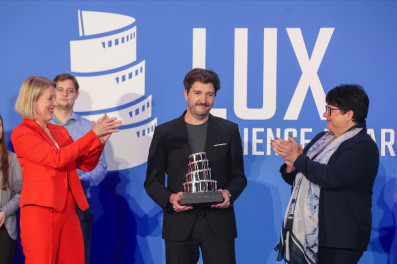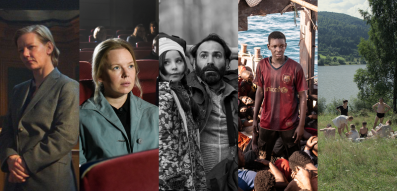Cocoon- review: From the naive "Cocoon" towards a mature butterfly
"Leoni Cripendorf has a female perspective as a great advantage, but this 94-minute achievement suffers from the borrowed aspects of already well-known and widely acclaimed films."
German director Leoni Kriependorf's second feature film explores perhaps one of the most popular themes of the 21st century - the loss of childlike innocence and naivety. With a premiere at the Berlin Film Festival as part of the "Generation" screenings before the pandemic became the new normality, this film theoretically contains all the ingredients to be widely liked, sympathetic and at the same time to leave a mark on the Z generation.
The only reason for scepticism would be the question - how to reformulate an already "exhausted" topic and put your stamp on it? Leoni Cripendorf has the female perspective as a big advantage, but this 94-minute achievement suffers from the borrowed aspects of already well-known and widely recognized films.
"Cocoon" focuses on the 14-year-old protagonist Nora (Lena Urzendovski) through the prism of a particularly hot summer in Berlin, Germany. She usually hangs out with her older sister Jule (Anna Lena Klenke) and her best friend Eileen (Elina Vildanova). Older girls have only two things in mind - boys and their appearance. Nora does not fit in with that company at all, but she does not know anything else about it until she meets the carefree "male" Roma (Jela Hase). As the weather gets warmer, the sudden friendship between the two girls becomes more intimate and romantic, narrated through shots that abound with intimate hugs in pools, cereal fields and roofs of Berlin buildings.
The beauty of the director's story lies in the collaboration with her cinematographer, who fantastically captures the summer in Berlin through all the vivid colours of the spectrum. The intimate moments between Romi and Nora are recorded so carefully and gently that the viewer can imagine watching them in real-time. The technique is reminiscent of the 2017 hit "Call Me by Your Name", which not only explores the same themes of sexuality discovery but also evokes feelings of transport to another place and time. Martin Neumayer is undoubtedly the greatest trump card that turns every moment into an idyll.
Borrowing from well-known feature films is not limited to Luca Guadagnino's film, however, so the film contains several scenes that are replicated from "Blue is the warmest colour" by French director Abdelatif Keshish. The moment when the girls spontaneously join the Pride Parade in Berlin and freely exchange tenderness, the scene when Nora dyes her hair blue and even the sudden realization of Roma infidelity are directly comparable to the film that won the Palme d'Or in 2013 in Cannes.
"Cocoon" is at the core a solid film in which the main actresses, young Lena Urzendovski, show that people can easily cope with sometimes unpleasant scenes and get a performance worthy of praise. However, when everything is put on the scales, cinematography and music are the main operators of the whole viewing experience, so the beauty of the butterfly is far from spectacular.
Written by: Petra Brankovska/gledaj.mk














